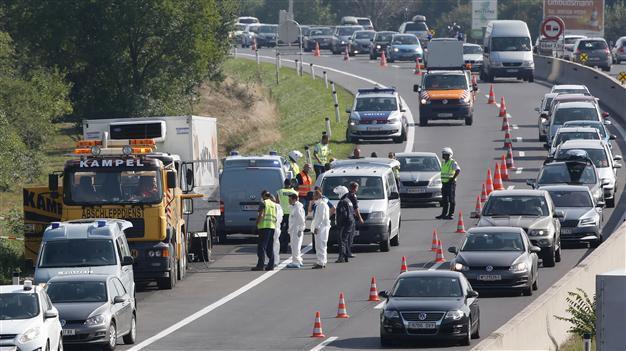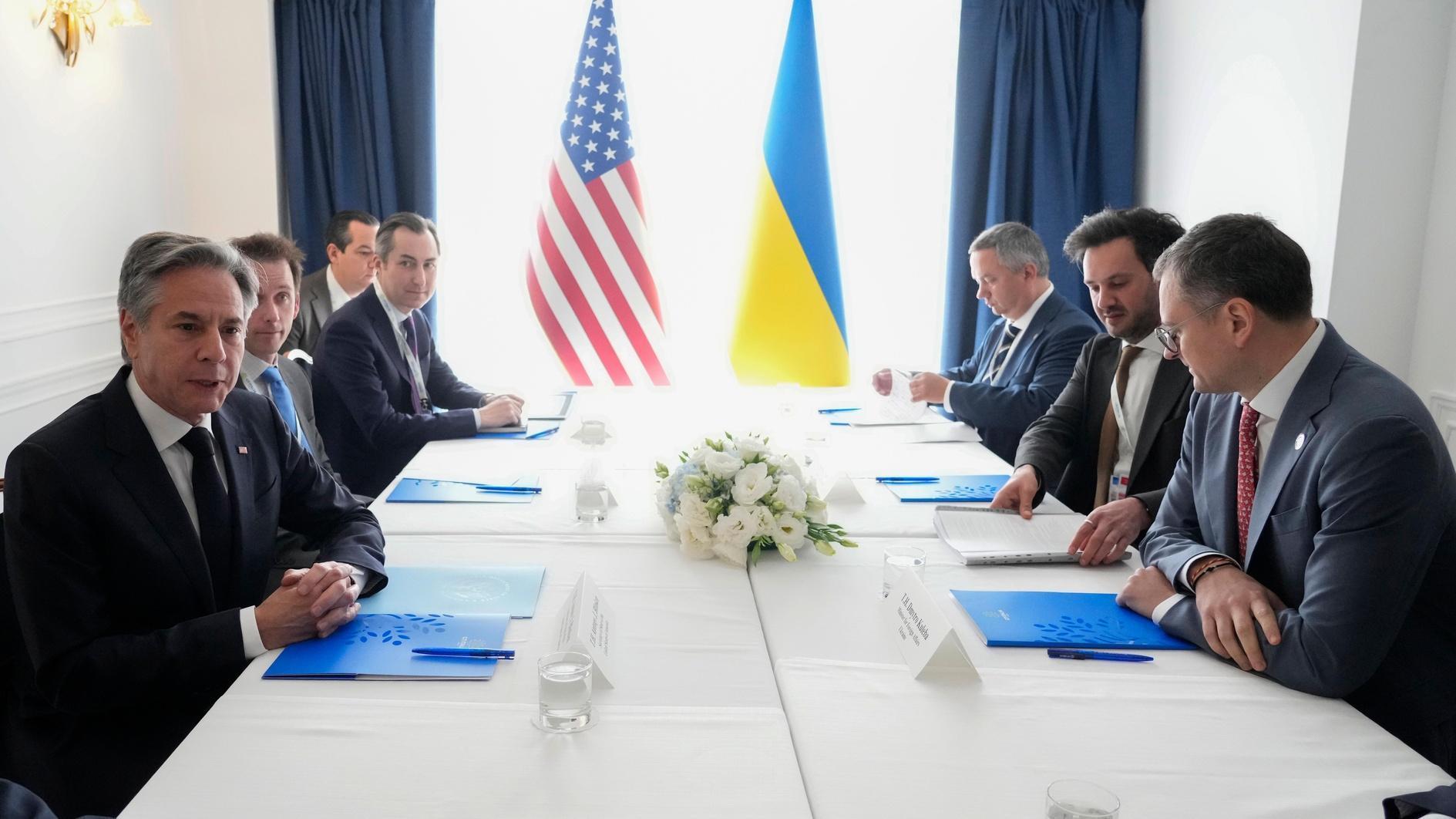Up to 50 dead in Austria as migrant crisis rages
VIENNA - Agence France-Presse

Police officers are seen around a refrigerated truck parked along a highway near Neusiedl am See, Austria, on August 27, 2015. The bodies of between 20 and 50 migrants have been found in the truck on the A 4 highway in Austria, police said Thursday, the latest tragedy involving people desperately trying to reach Europe. AFP Photo
Austrian police found the decomposing bodies of up to 50 migrants in an abandoned truck on Aug. 27, sparking a cross-border hunt for the people-smugglers responsible for the latest tragedy in Europe's migrant crisis.The grisly discovery near the Slovakia and Hungary borders came as European leaders again met to try to find ways to handle the tide of people seeking refuge in the European Union and as several more migrants drowned trying to reach the bloc's southern shores.
Austrian police said the vehicle found on Aug. 27 on a motorway -- which had the markings of a Slovakian poultry company and Hungarian number plates -- contained between 20 and 50 bodies.
German Chancellor Angela Merkel, in Austria for a summit with Balkan leaders on the crisis, said she was "shaken" by the "horrible" news.
"This is a warning to us to tackle this migrants issue quickly and in a European spirit, which means in a spirit of solidarity, and to find solutions," Merkel said.
This year over 2,300 men, women and children have drowned in the Mediterranean after rickety boats operated by people-smugglers capsized.
Libya's coast guard said on Aug. 27 evening at least 10 more people had died in the shipwreck of a boat carrying around 200 migrants bound for Europe.
Only around 20 to 30 people had so far been rescued from the vessel, which went down off the western port of Zuwara, a coast guard official told AFP, raising fears the death toll could rise sharply.
The sinking comes a day after at least 55 bodies were discovered on three overcrowded migrant boats, most of them found dead of suffocation in the hold of an overcrowded vessel found drifting off Libya.
Italy's coast guard said it had coordinated the rescue of around 1,400 migrants on Aug. 27, bringing to over 4,000 the numbers brought ashore in two days.
The Aug. 27 tragedy in Austria brought home how dangerous the land journey for migrants through eastern and south-eastern Europe is too.
"Today is a dark day... This tragedy affects us all deeply," Austrian Interior Minister Johanna Mikl-Leitner told a press conference.
Many migrants pay hefty sums to human traffickers to arrange their passage to their final destinations in western Europe.
"Human traffickers are criminals," Mikl-Leitner said.
Police said more details, including the exact number of dead, would be given on Aug. 28 morning. The lorry, which police said was leaking "decomposing body fluids", was taken elsewhere for the removal of the bodies.
Hungary said it would join the investigation into the incident.
Meanwhile, another 2,500 people, mostly refugees fleeing wars in Syria and elsewhere in the Middle East, were heading north by bus through Serbia to the border with Hungary, a bus station official in Belgrade said.
"Around 50 buses have left, or will leave Belgrade for Subotica and Kanjiza (on the Hungarian border) today. Around 10-15% of the passengers are Serbian citizens, the rest are migrants," he told AFP.
Hungary, an EU member state on the bloc's southeast border that is a country of transit on the migrants' route west, has received more than 100,000 arrivals this year.
"The tragic event shows how the EU's migration policy has failed," Hungary's ruling party Fidesz said.
"Instead of the current unregulated border-crossing, controlled border-crossing and border defence is needed to avoid such cases happening."
European leaders have come under fire for failing to tackle the arrival of several hundred thousand migrants this year, many fleeing hotspots such as Syria, Iraq and Afghanistan.
The western Balkans has become a major route for migrants and refugees trying to get into the EU.
Speaking at the Vienna meeting, Serbia's Foreign Minister Ivica Dacic said outside money provided so far was insufficient to handle the large numbers.
"I have to be very direct here. Please understand, we are bearing the brunt of the problem," Dacic said.
His remarks were echoed by his counterpart from Macedonia, which last week shut its border with Greece for three days after being inundated with migrants.
"Unless we have a European answer to this issue, none of us should be under any illusion that this will be solved," Nikola Poposki said.
Reiterating his call for a reform of EU rules "to distribute refugees fairly", Germany's Foreign Minister Frank Steinmeier said Berlin would contribute one million euros ($1.1 million) to help.
But with large numbers of people from the western Balkans among the migrants, he also called on governments there to make clear to their citizens that their chances of obtaining asylum in Germany are "virtually non-existent".
UN refugee chief Antonio Guterres and French Interior Minister Bernard Cazeneuve called for the urgent creation of more so-called "hotspots" -- processing centres to sort refugees fleeing war from economic migrants who are simply in search of a better life.
Hamstrung by a lack of a coherent European response, governments have at times taken contradictory approaches to the problem.
While Hungary is building a 175-kilometre (110-mile) razor-wire anti-immigrant border barrier, a Czech minister has called for the passport-free Schengen zone to be closed with the help of NATO troops.
Meanwhile Germany, which is preparing to receive a record 800,000 asylum-seekers this year, has eased the application procedure for Syrians fleeing the brutal civil war.
But Berlin's largesse has not been welcomed by everyone at home, particularly in the east where a spate of attacks has targeted refugee centres.
On a visit to a migrant shelter in the eastern town of Heidenau, Merkel was greeted by about 200 protesters, some booing and shouting "traitor, traitor" and "we are the mob".
The German leader vowed: "There will be no tolerance of those who question the dignity of other people."
















